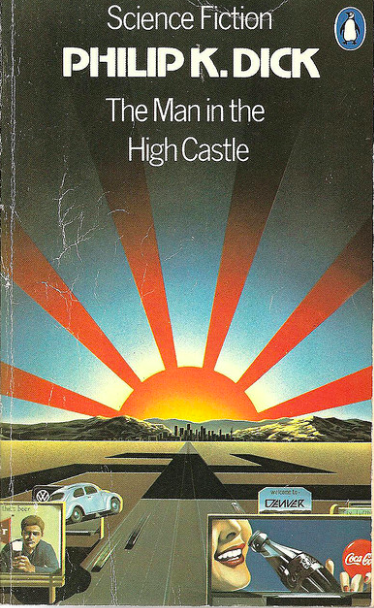|
Issue 3, Semester 2, 2019 MAX FERGUSON If you’re anything like me (and God help you if you are), then you too need a distraction to stave off the insanity of law school. Recently, I found myself hooking into a nice, juicy, P.K. Dick classic: The Man in the High Castle, which fit that bill nicely. Probably the most famous book in the ‘alternative history’ genre, High Castle centres around a deceptively simple question - what would the world look like if the Axis powers had won the war? Now, this kind of question has been the fodder of year ten classrooms for decades. Some of my school friends took a particular kind of relish in saying such things as, ‘if only Hitler hadn’t stopped his tanks before Dunkirk,’ or, ‘if only the Luftwaffe had concentrated their fire on military targets.’ People seem to glean a certain masochistic pleasure from imagining a world far darker than the one which we currently inhabit. Such commentaries run the risk of appearing trite – mere self-gratification. I was pleased to find that Dick does not fall afoul of this trap. Instead, he invites the reader to experience the everyday reality of his characters, while history takes a backseat. Indeed, not only does the new social order of Dick’s world drive the story throughout the book, it also suffuses Dick’s grammar and syntax. Characters’ perspectives are therefore intimately flavoured by Japanese influences in parts, and German in others. Whilst the unfamiliar cultural juxtaposition can be jarring, it makes for compelling narrative, and immerses the reader from wherever they left off.
The converse of Dick’s exercise in American deconstruction, is the transplantation of Japanese cultural mores and attitudes. In so doing, he does run the risk by modern standards, of ‘orientalising’ some of the Japanese characters in the book. Such is not to say that they are rendered flat or inhuman; quite the contrary. The non-American characters are presented to be far more forbearing, competent, and wise, even more than the average Tom, Dick, or Harry. Nevertheless, in so doing, Dick suffuses the new world with a kind of insidious neuroticism, and hence leaves himself vulnerable to the suggestion that he buys into the idea of predetermined differences between the races. That minor criticism aside, Dick succeeds brilliantly in the task of exploring a complex topic, and grappling with the ways in which culture informs our humanity. If you want a serious historiographical work, leave this book aside. Its true worth is not to be found in a pedantic adherence to historical fact, nor even in its narrative, but in the rich social and cultural fabric it weaves around each of these elements. Max is a First Year JD Student Comments are closed.
|
Archives
October 2022
|



